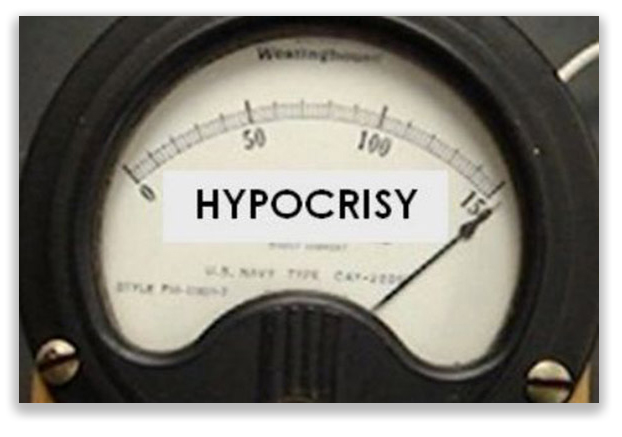We post news and comment on federal criminal justice issues, focused primarily on trial and post-conviction matters, legislative initiatives, and sentencing issues.
BEHAVING BADLY
Forgive us for observing that as a group – and we concede there are a few exceptions – Assistant United States Attorneys who handle criminal matters are as sanctimonious a lot as a conclave of newly-converted vegans. It’s hardly their fault: look at their leader, Jefferson Beauregard Sessions III.

In 2009 the man opposed the appointment of an attorney to head DOJ’s Civil Rights Division because 27 years before he had represented a defendant accused of killing a copy, saying his opposition “was based upon the fact that the civil rights division ‘must protect the civil rights of all Americans’ and not be used as a tool to further the political agenda of ‘special interest groups’.” Most recently, he said, “Drugs and crime go hand in hand… Drug trafficking is an inherently violent business.”
OK, to be fair, prosecutors have always thought they were on the side of the angels, and therefore, no holds are barred in winning a conviction. And sure, every newly minted AUSA can quote the aphorism from Berger v. United States that while a prosecutor “may strike hard blows, he is not at liberty to strike foul ones.”

And that happens? You could ask the late Senator Ted Stevens (R-Alaska), if he weren’t dead. Or check in with Reddy Annappareddy, a guy who isn’t dead, and whose federal healthcare fraud case folded like a cheap suit a couple weeks ago after the judge found “multiple instances of prosecutor misconduct.” Finally, watch between now and June 30th to see what the Supreme Court holds in Overton v. United States, a Brady case in which the prosecution is accused essentially of keeping the wrong guys locked up for 33 years by hiding evidence.
But this is not about misconduct in the U.S. Attorney’s Office as much as it is about the double standard DOJ uses when such misconduct is found. A defendant is convicted and then sentenced, and the DOJ gleefully piles it on with a supercilious press release like this one, about a Navy admiral whose career is in tatters and pension gone, and is now headed off to a camp somewhere for about 15 months net.
The Admiral was high profile, and so his conviction will live forever on the Internet anyway. But how about some poor schmuck in North Carolina who just got 120 months for a tax preparation fraud? Someday he’ll be back in society, and the DOJ press release will dog his heels on the Internet for the rest of his life.
 If you’re going to do that kind of thing, the least the public should expect is that you’re consistent. Yesterday, the Dept. of Justice Office of Inspector General announced that it had found that “a United States Attorney (USA), now retired, engaged in misconduct by engaging in an intimate personal relationship with a high‐level, but subordinate, supervisor in the Office (Supervisory AUSA).”
If you’re going to do that kind of thing, the least the public should expect is that you’re consistent. Yesterday, the Dept. of Justice Office of Inspector General announced that it had found that “a United States Attorney (USA), now retired, engaged in misconduct by engaging in an intimate personal relationship with a high‐level, but subordinate, supervisor in the Office (Supervisory AUSA).”
That’s right. No names, no location, no time frame. The U.S. Attorney – appointed by the president and approved by the Senate – did something that “gave the appearance of partiality, created a difficult work environment, and violated Executive branch‐wide standards of conduct, federal ethics regulations, and possibly federal regulations and DOJ policy regarding sexual harassment in the workplace.” But we’re not allowed to know who the malefactor was, because – however badly he behaved – he was one of “them.”
 By the way, the “Supervisory AUSA” – who apparently still works there – “inadvertently failed to report spousal stock trades completely and accurately on required financial disclosure forms.” One might reasonably think that the public has an interest in knowing that a “Supervisory AUSA,” who is given substantial responsibility for holding other people accountable (and who generally ensures that AUSA sanctimony is the rule rather than the exception, was cavorting with his or her boss and, at the same time, was negligent (or worse) with his or her own financial reporting of the cuckolding spouse.
By the way, the “Supervisory AUSA” – who apparently still works there – “inadvertently failed to report spousal stock trades completely and accurately on required financial disclosure forms.” One might reasonably think that the public has an interest in knowing that a “Supervisory AUSA,” who is given substantial responsibility for holding other people accountable (and who generally ensures that AUSA sanctimony is the rule rather than the exception, was cavorting with his or her boss and, at the same time, was negligent (or worse) with his or her own financial reporting of the cuckolding spouse.
One might reasonably think that, but one would be wrong.
– Thomas L. Root

